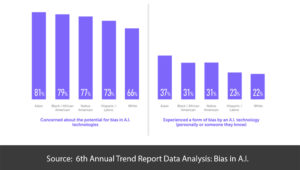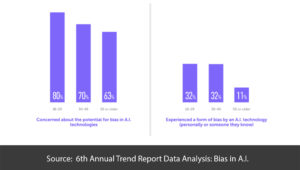Whether we like it as a tool or fear that it might steal our jobs, Artificial Intelligence is here to stay in all its manifestations and permutations. In fact, in one year from now, AI will be doing things, enabling actions, and disrupting businesses in ways we cannot begin to fathom right now.
Many in the experiential industry are afraid AI platforms like Midjourney and ChatGPT are going to render their businesses moot, but Thinkwell embraces Artificial Intelligence. Why? It’s quite simple.
Art is communication. Design is providing solutions. Building projects is hard.
Some in our field have pivoted to using AI as a means to get work done faster and cheaper. We use AI as a tool to inspire new takes on our communication tools and empower our artists, designers, and writers to lend new perspectives on our work or serve as a design inspiration tool.
It’s easy to stop there. Let’s be clear about what is going to happen right now. Clients will be coming to us with their own ideas, generated by AI. They will have their own pitch decks with grand art and straightforward narratives, showcasing a vision for what they would like their new project to be. By all appearances, this suggests that what we do (develop a strategy and approach, come up with the grand vision, then execute) becomes completely devalued, as clients could say, “Look, we’ve already developed the big idea. We don’t need your ‘Blue Sky’ phase any longer.”
Whether this is true or not doesn’t really matter. There are two adages that are true in this situation:
- Perception is 9/10ths of a person’s reality.
- The client is always right.
You could probably add a third: Clients want to save money.
So where do we go from here? For TAIT + Thinkwell we don’t even have to pivot. We are already the largest independent experiential design and production company in the world. With our team of seasoned, passionate creators, 1200 engineers, and one million square feet of fabrication space worldwide, we have the capability to turnkey deliver virtually any project.
AI will empower our clients to “pre-vis” their projects, aspirations, and big ideas. That’s amazing. Now TAIT + Thinkwell can bring those AI-fuelled “Blue Sky” concepts to life–while we continue to validate those big ideas by bringing our acumen and decades of experience to the strategic development, functionality, throughput, engineering, detailed design, buildability, budgeting, scheduling, and in-field direction, programming, and completion to our client’s projects. With hundreds of projects opened successfully around the world pleasing more than 430 million people, we know how to bring big ideas to life.
Artificial Intelligence is a tool that brings the power of pre-visualization into the hands of all. How those aspirations get brought to life still requires the best wetware on the planet: skilled, experienced humans.

